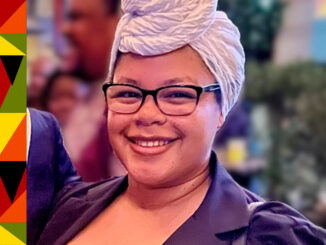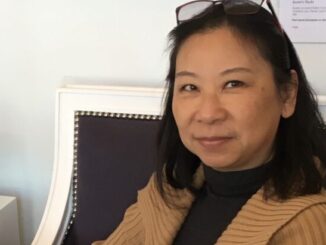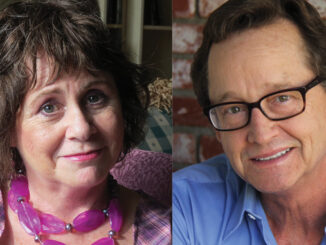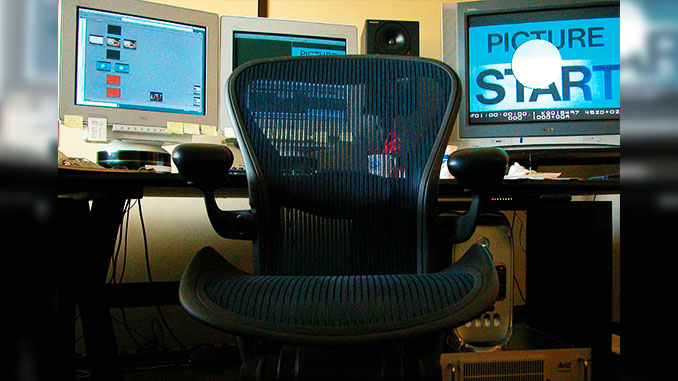
By Andrea Van Hook
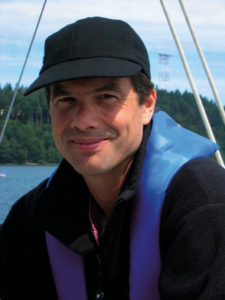
Brian Berdan
I had a fairly typical rise up through the ranks. Essentially, I followed my editor, Duwayne Dunham, on his rise. He always wanted to direct, and when he got his chance on Homeward Bound: The Incredible Journey, I was given a shot to join the four other editors on the show. As an assistant, most of my time was spent at his side digging for trims, filling his coffee cup, and watching him work. As I work now, there’s always an echo of his approach in what I do, and since he assisted George Lucas, I can only hope that Duwayne was paying attention, too.
Regrettably, I have to agree that the process of mentoring has broken down in some ways. On the other hand, the physical task of editing is much easier and more immediate with non-linear than it was on film. If an assistant wants to learn, he can experiment to his heart’s content and not worry about having only one workprint. It may take a little more perseverance to pull hints and tricks out of the editor, but there are so many great, low-cost tools now that there’s no excuse to not be practicing whenever and wherever.
Jill Bilcock
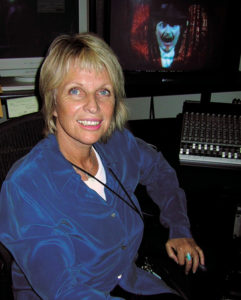
I was in the first film course offered in Australia. At the end of the fourth year, we made a five-minute film. One of my examiners was the producer and director Fred Schepisi, and he offered me a job. I started out producing television commercials, then at Fred’s suggestion, I started cutting.
I got a job in London working in music, but on the way there, I stopped off in India for two weeks. I ended up staying a year, working in Bollywood as a small time, bit-part actress in musicals. When I eventually arrived in London for my job, they said, “Sorry, you’re a bit late.” I went back to Australia and taught art and filmmaking for two years, then re-entered the industry, once again to work with Fred Schepisi.
I then started my own company doing post for commercials, small films and music videos. I hired a young assistant, Richard Lowenstein, from the same film school I went to. He went on to direct a film, and I cut it for him. That was Strikebound, the first feature I cut. Then I started cutting constantly.
To get work, it’s a matter of managing to somehow present yourself. I find, physically, that I need to meet people. The great thing about technology is that you can cut anything at home on your computer to show you have an aptitude. Word of mouth, unfortunately, is one of the biggest reasons people get hired. I get a lot of resumes from assistants looking for work, but they’re not very helpful. A list of projects that people say they’ve done doesn’t tell you anything about their work, unless you know the editor on that job and can ring and ask them.
Editors need an assuredness that comes from knowing something’s working or not, because you’re faced with so many decisions. If you don’t have that inherent ability, you’re too open to people coming and trying to change your approach. You need a natural sense of storytelling, rhythm and visual sense. I think you need quite a strong visual sense to work in pictures today.
Donn Cambern
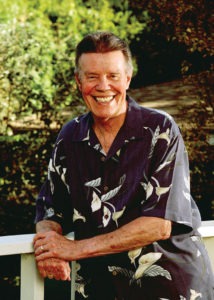
I was working at a small music editing company, where we edited series like The Monkees and Tarzan. Burt Schneider, asked my friend Jerry Shepherd to edit it. Jerry
had just helped me with suggestions on the first film that I had edited. He was happy where he was, so he recommended me, and that’s how I got Easy Rider.
Editors have a responsibility to help their assistants who show promise. Today you can also study editing in school – I teach at AFI and the Los Angeles Film School, as well as at the International Film School on Cologne, Germany. Once or twice a year, I teach a one-week course at the Maine workshop in Rockport, Maine. What I’ve observed is that a large number of people are tremendously skilled in the use of technology but have not studied storytelling and how it is achieved through editing.
I don’t believe in rules, except for two – don’t confuse and don’t bore. Otherwise, anything goes. The major skill is storytelling. Economy is the guiding principle – within the content of the scene or picture, every moment counts. We use the power of imagery, compress dialogue as much as possible and always look for behavior to reveal subtext. That is how a scene achieves depth.
Study movies and analyze the editing approach, and at the same time broaden your sense of writing, acting, directing, cinematography, imagery and music. The broader the base of your experience and knowledge, the more you have to draw upon, even in the simplest of scenes, which at times can be the most confounding.
Lisa Churgin
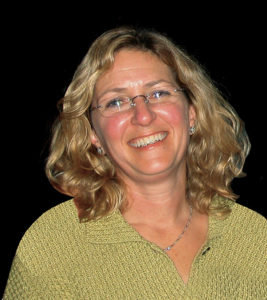
Save your money. Towards the end of my career as an assistant editor, I knew I wanted to cut, so I saved money in order to have the ability to work for free. My editor, Carol Littleton, was asked for a recommendation for an AFI film, and she not only recommended me, she loaned me her KEM, which was a huge favor. I had worked with Carol on two films, and she had been very generous with her time in terms of talking about her scenes and her choices, and asking my opinion. You begin to develop a vocabulary, so by the time you’re in the driver’s seat, you have confidence in what you are doing. If you’ve spent time in the trenches, by the time you become an editor you really know what you need to know, or you know who to ask.
For my next job, I was referred to Alan Rudolph. He liked using assistants as they made the transition to editor, because he thought they were very malleable, and he liked editing himself, so it was a good match for him. I was able to get an agent with that film.
There are now a lot of low-budget movies and a tremendous number of film students and filmmakers making small DV movies. I allow people to come in and work on my Avid at night, to help the cause. If somebody can find an editor whose work they admire, and work with them, then hopefully opportunities will come.
Mark Goldblatt
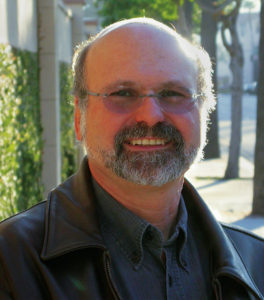
When I arrived in LA from London, where I was trained, I had to take whatever job I could get. One of my first jobs was as a production assistant on a Roger Corman picture. I brought coffee and donuts to the set, and I met many wonderful people, among them producers, directors and editors I made some important professional contacts – friends who remain so to this day. You want to meet as many people as you can, send out your resume and get out there and go to public situations, whether it’s seminars or talks by editors.
Eventually a friend at Roger Corman’s hired me as an assistant editor. When he moved on to directing, he hired me as his co-editor. In time, I found myself with a body of work. I got to work on movies that had some visibility, which is important. Luck has a lot to do with that.
These days there are many more people competing for editing work than when I started. Individuals are getting educated, but often they are just mastering the technical stuff. It’s about who you are as a person and what you observe and absorb from your life experiences. Theatrical, dramatic movies are based on all kinds of things that people think about, such as history, philosophy and art. If, for example, you have knowledge of art history or diverse musical styles, these resources become part of your instinctual arsenal as an editor. Also, watching and studying great films of the past and present can be a tremendous influence. Sometimes it’s more about a way of thinking than great technical ability: the interface between technology and the organic aesthetic nature of editing. You can’t take a class in that, but it should be your ongoing education.
Tina Hirsch
In New York, I did 16mm films, including documentaries, educational and corporate films. I came out to LA on vacation and got together with the producer of Woodstock, on which I had worked. We called Marty Scorsese, who had also worked on the film. He had been editing a film but had to stop because he was prepping Mean Streets, so he recommended me to take over that job. I worked for a month and then decided to stay in California. I worked as an assistant for about six months, then held a screening of a feature I’d cut in New York for everyone I knew in Los Angeles. One of the people who came was a director, and he hired me to do Macon County Line.
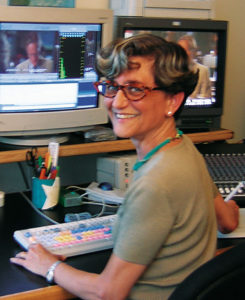
Because of digital technology, assistants have the ability to cut footage without affecting the editor’s cut, so my advice to assistants is to cut as much as possible. Make tapes to show people. Ask your editor for comments and take them to heart. You have to be able to deliver when you get your break. It can be unlucky to get your break before you’re ready, so that’s why I suggest cutting every chance you get.
Observe the editors you are working with, to see how they handle situations. Frequently, how you behave is almost as important as how you cut. I did my first studio job after five or six films with Roger Corman. Having never worked as an assistant to a studio editor, I didn’t understand studio politics, and I said things that were inappropriate. I learned the hard way.
I’ve come to realize that finding work is a result of connections and networking. I also like to joke that you have to have butt power – you may have all the talent in the world and great talent, but if you can’t physically sit still and focus for 12 hours a day, you’re in a lot of trouble. One of the most important personality traits for an editor is loving to solve problems. You have to have a high tolerance for frustration, and be excited by the idea that if things don’t work, there has to be a solution. I had a scene in Gremlins where I had to make the puppets dance. I didn’t have enough footage to make it work rhythmically. So I actually chopped a shot into nine frame pieces and put the film in upside down and inside out to solve the problem.
Norm Hollyn
My first feature as an editor was a Roger Corman film called Daddy’s Boys. The director was a writer’s friend of my wife’s who had seen some of my work. I had done a short and some television editing and I had been editing music for years, so I had a lot of contacts. That film led directly to Heathers – the director, Michael Lehman, had the same agent as the director from Daddy’s Boys.
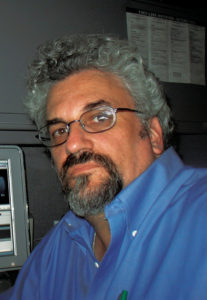
I find that I like moving back and forth between features and television, fiction and non-fiction, and commercials. So I’ve worked in a wide variety of styles and media as opposed to specializing in one. That attracts a certain type of director/producer. The directors I’ve consistently worked with are people interested in many things – literature sociology, psychology. As a result, they like people who have a wider range of experience.
Make sure you have the skills you need. Today, a lot of editors get their first jobs on lower-budget films, and they need to know not only the Avid but other software as well. It helps to know hot to cut sound and use applications like Adobe Photoshop, because often you will be your own assistant and sound editor as well as editor.
Getting work in the editing world, like the film world in general, is based on having people comfortable with you. As a result, it is important to find places for connection during an interview, whether you speak French and so does the producer, you worked in the same neighborhood in New York, simple things like that. In addition, people admire dedication, so you should be dedicated to great assisting work, great sound editing work, great music editing work. That passion is what people respect. I tell my students at USC that more than 50 percent of what I do as an editor is not about editing, but about having people trust me. You need people to believe that you’ll be playing in the same ballpark and on the same team.
Farrel Levy
When I was an assistant editor, working for Peter Frank in New York, many of my peers took low-budget features so they could have a chance to cut. That wasn’t an option for me, because I was a single mother with a child to support.
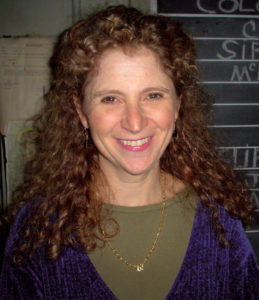
Peter was a terrific mentor when it came to film editing and the dynamics of how a story works. Eventually, he was offered a film that was fairly low-budget and didn’t have any big stars, so I thought it would be safe to ask if I could cut some scenes and get an associate editor credit. Peter said fine. At our first preview, we all were very surprised how much audiences liked the film. It was Dirty Dancing. None of us anticipated what a huge success it would be.
I soon moved to California, but when I went out on interviews, producers were not interested in my associate editor credit. So I took work again as an assistant editor, synching dailies. I heard about the Chanticleer program that was giving first directors $35,000 to make a small movie, and they were looking for editors. I was married by then, so I wasn’t so dependent on just my income, and my husband encouraged me to go for a meeting. The director was also a working mother, and we found we had much in common. I took the film, even though it meant working for free. The film went on to win a lot of awards, and that helped me land paying work as an editor. When I interviewed for my job at Bochco, they had seen it, so it paid off down the line.
My advice to assistants and film students is to do anything you can, whether that’s working for free, working low-budget, working in reality television, as long as you can learn the craft. I know people who have waited until the absolute right opportunity came along, and that’s certainly one way to go. But it can take a long time. Being an assistant editor in television is a much quicker route to editing than assisting features, because there’s so much more television around and people move around a lot, If you’re on a TV show and you know the style of the show and the players, they’re more likely to move you up than to bring in an outside editor. Just keep your eye on the prize – you’ll get there.
Carol Littleton
On paper, it looks like I sprang forth doing Body Heat, The Big Chill and other Hollywood mainstream movies, but I had done a lot of editing before that.
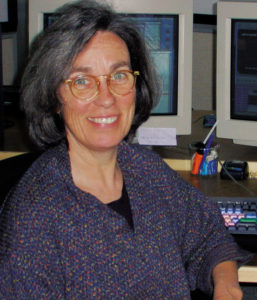
I moved to LA in January of 1970, but it took me nine years of bouncing around doing low-level jobs before I had the opportunity to edit a studio picture, I even cleaned toilets in a little commercial house, because that was the only job they had. I supported myself by cutting commercials, and then when I had enough money set aside, I would cut a student film or a low budget film.
Oddly enough, I got my first studio picture, French Postcards, because the producers needed a talent that I happened to have: the film was shooting in Paris, and I spoke just enough French to get along, Through that movie, I met George Lucas, who helped with that project. He was also a great friend and support to Larry Kasdan, and recommended me to Larry for his first picture Body Heat.
The best way to help yourself is to be totally accessible and helpful to those people who work for you. This is a huge generalization, but I think women instinctively help our colleagues, because we know it doesn’t pay to climb the ladder of success by standing on the heads of others. I also think editors are some of the most generous folks, in terms of their time and help, to people who work for them. I remember how hard it was for me to get started, and I would never put people through that if I could help it. It was a hard nine years, and I don’t know why I didn’t give up.
Editing is an odd job, because on the one hand you need to be on the outside to have a straightforward, analytical view of the narrative, but at the same time you need to be inside, and allow yourself to be emotional and feel what you’re doing. I started out as a student of music as an undergraduate. I changed my formal degree to study literature, but still continued to play in an orchestra during college. The skills I learned in music, in doing something over and over again until it’s right, that’s exactly what an editor needs. By the way, doesn’t the editing room look a lot like a music practice room?
Steve Lovejoy
I worked in the shipping room at Universal, and in those days you found an assistant to befriend you and teach you how to do dailies. An assistant invited me up to his editing room. Eventually I got pulled into working on that show, because when their schedule accelerated an apprentice was needed, the editor, Ed Biery, said to hire that kid who had been hanging around the cutting room.
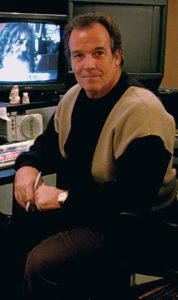
I became Ed’s assistant. He gave me scenes to cut, so I basically learned from Ed. I worked for many years as an assistant, and got a couple of second editor jobs. My first single, front end credit was on an ABC movie of the week called Dancer’s Touch. I knew those guys because I was working as an assistant, and I was in the right place at the right time and got hired on.
In those days, there was very much an apprentice/mentor notion. Your editor would train you protect you and look at your work. That’s how you learned, by sitting with a more experience guy or gal. The studios had one person in features and one in television who were in charge of post production, so you contacted them to find out about jobs. It was much more centralized.
Today, when people ask me what I do, I say I’m in sales. For the last ten or twelve years, the majority of my time has been spent staying in touch with people and finding out what’s happening, If you don’t have networking skills, you have a really hard time finding work.
In this modern, digital age many people now come at from the equipment side, instead of the storytelling side. In the old days, you really got schooled in story telling. I’m on the board of directors for the American Cinema Editors, and it’s of deep concern to everyone at ACE as to how the collective experience of this generation of editors is going to be passed to the next generation, and teaching that storytelling frame of mind. It’s more than knowing which keystroke does what. It has to do with being an observer of the human experience. It’s about living your life and understanding the material for editorial decisions comes from how observant you are, not how quickly you can put in an effect, render it and get a tape out because someone is leaving early. All of us now have this digital impatience, which means that no matter how fast you’re going, it’s never fast enough.
Pietro Scalia
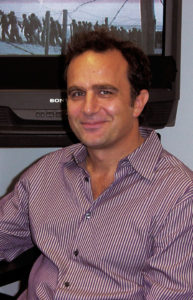
I admired Oliver Stone’s work and was blown away by Salvador. I decided I wanted to work with Oliver. David Brenner was the assistant to editor Claire Simpson, and I was friends with David’s sister. I kept bugging David to allow me to work with them, and my opportunity finally came on Wall Street.
I worked with Oliver Stone for the next five years, moving up through the editing crew, until I was asked to edit an amazing picture with Joe Hutshing- JFK. That film was a great springboard into my career. People liked the editing and felt we did a tremendous job. So it put my name on the map, I guess.
It’s harder to come up through the ranks now, because the digital cutting room has diminished the exposure assistants get to the creative process between the director and the editor. If you really want to edit, you should do it whenever possible. It’s important to know what kind of films or work, one wants to do and to pursue that. In the beginning, You must have the passion, desire, and perseverance to knock on every door asking people for the opportunity to work and learn.
Good editors have a sense of rhythm, a sense of aesthetics, and a sense of dramatic structure, which is what constitutes good storytelling. One important quality to have as an editor is to be able to put oneself in the work, to have the work emanate from within. You need to be sensitive to the world around you, and to use your life experiences and knowledge as the foundation for the work. Editing is not only a rewarding craft, but the magical art of audio visual storytelling.
Martin Walsh
I quit school early and decided that I didn’t want a job that involved wearing a suit. Architecture or photography sound cool, though I’d never been near a real camera or taken any notice of a building in my life. An interview with Cinephoto, a six-person industrial film company in Manchester, England where I grew up, gave me the opportunity to make tea and carry film cans.
I started by recording sound, staggering around with a Nagra and waving a giant microphone whilst being dragged along by the cameraman. It was incredibly exciting. I was soon responsible for music and sound editing on a succession of jobs. I was able to join in on sound mixes, and eventually in cutting the pictures together.
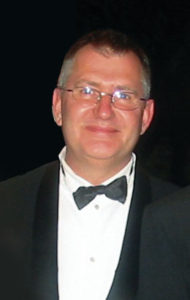
An opportunity arose at the BBC news department in Manchester and I jumped. I was soon filling in for editors on leave and got my little news items on TV. What a thrill! Thirty beautiful seconds of film about a strike in a factory, ruined only by the journalist’s insistence in talking all over it!
My advice to assistants is don’t wait to be asked. If you’re sitting there with an Avid in front of you and a copy of the movie at your fingertips, go for it! Throw in some sound effects, clean up the dialogue tracks. Try a few temp music ideas. Don’t be afraid. If your editor likes even part of it, he’ll steal it- I promise you– and put it in the cut. Both he, if he’s honest, and the director will be impressed and your stock will have risen accordingly.
Be proactive, If you have an idea that you think can improve the cut, express it. Editing can be a lonely existence and I, for one, am appreciative of any suggestions from anyone on my crew. Filmmaking is, and always will be, a collaborative process. Much as they’d like, nobody can make a film on their own. Assistant are a vital part of this process.


